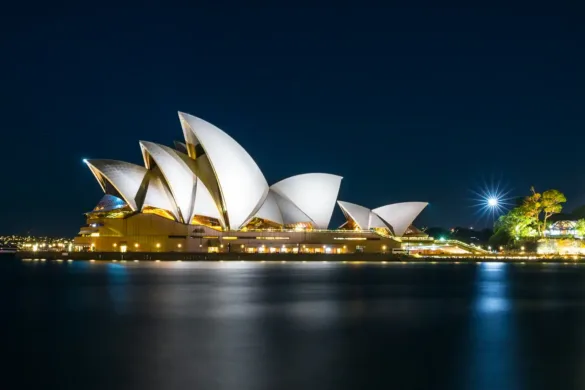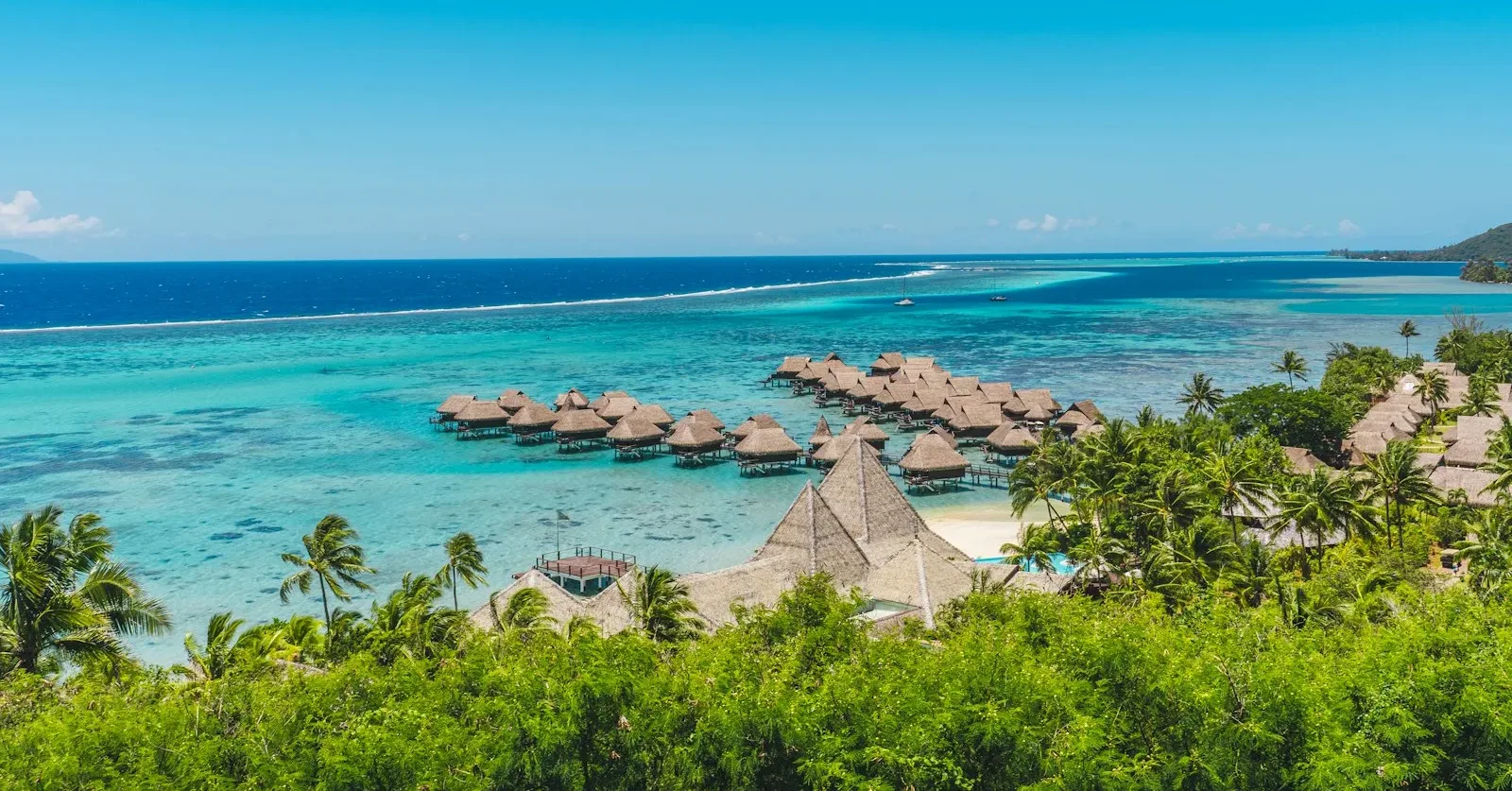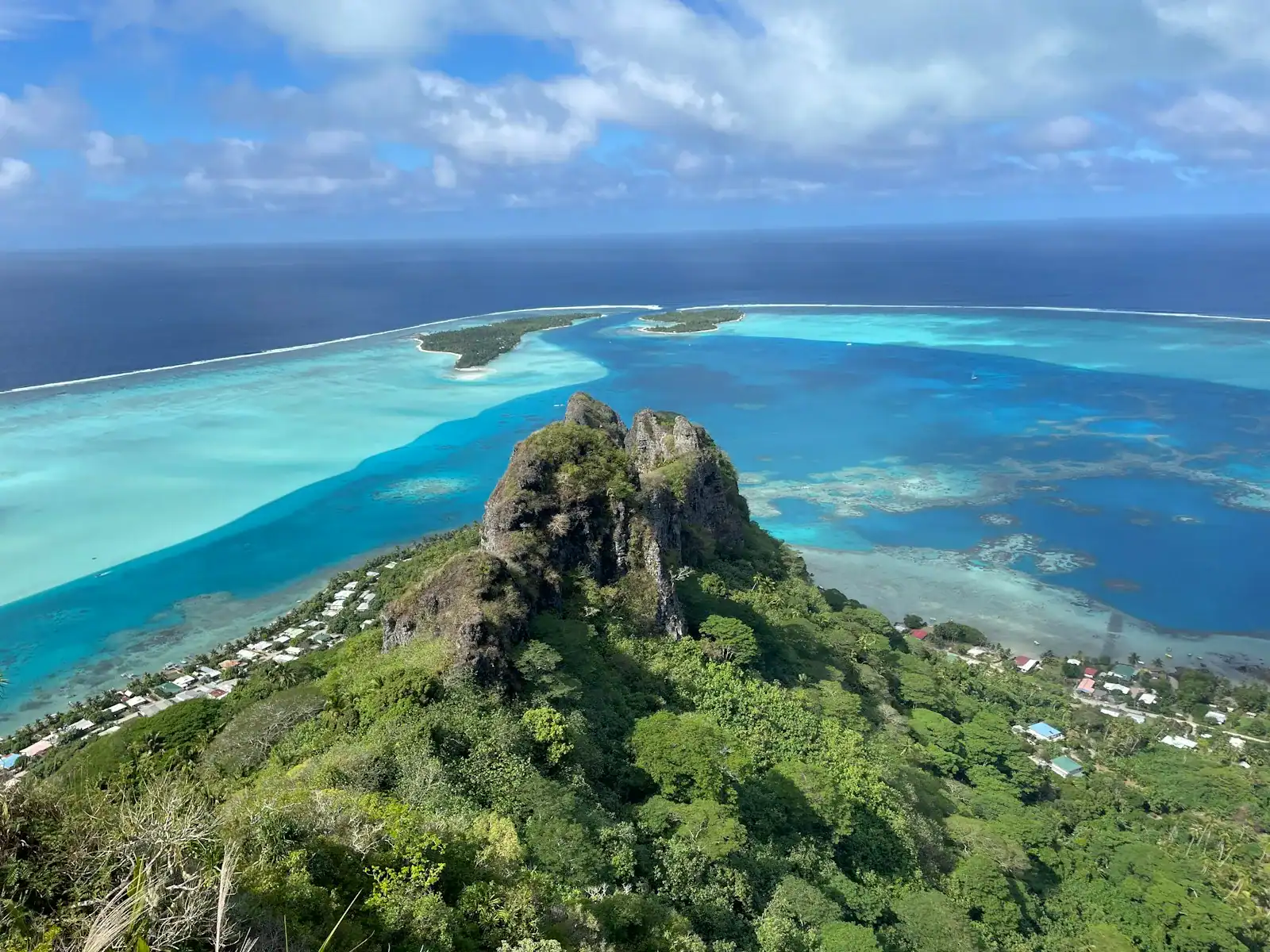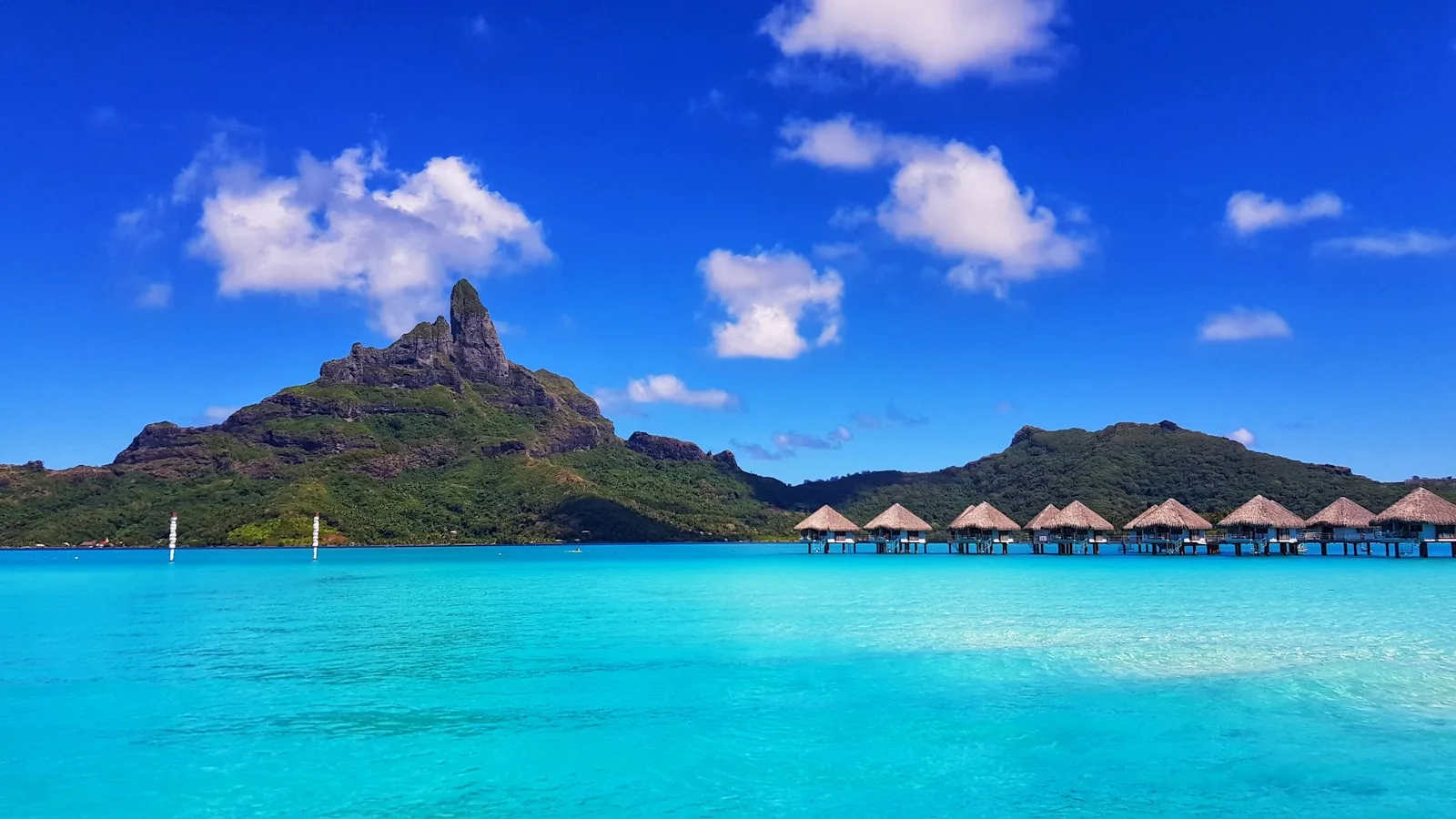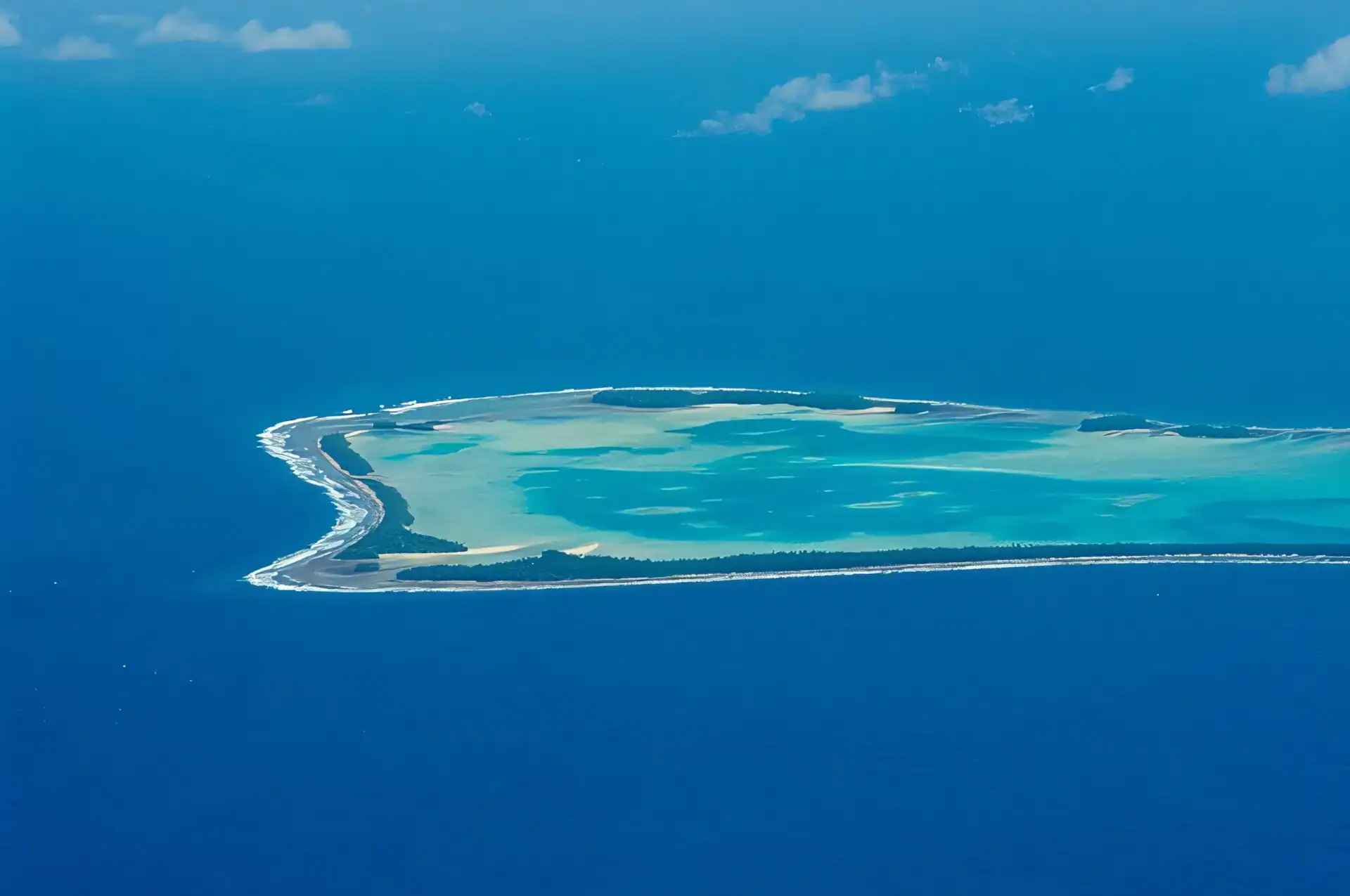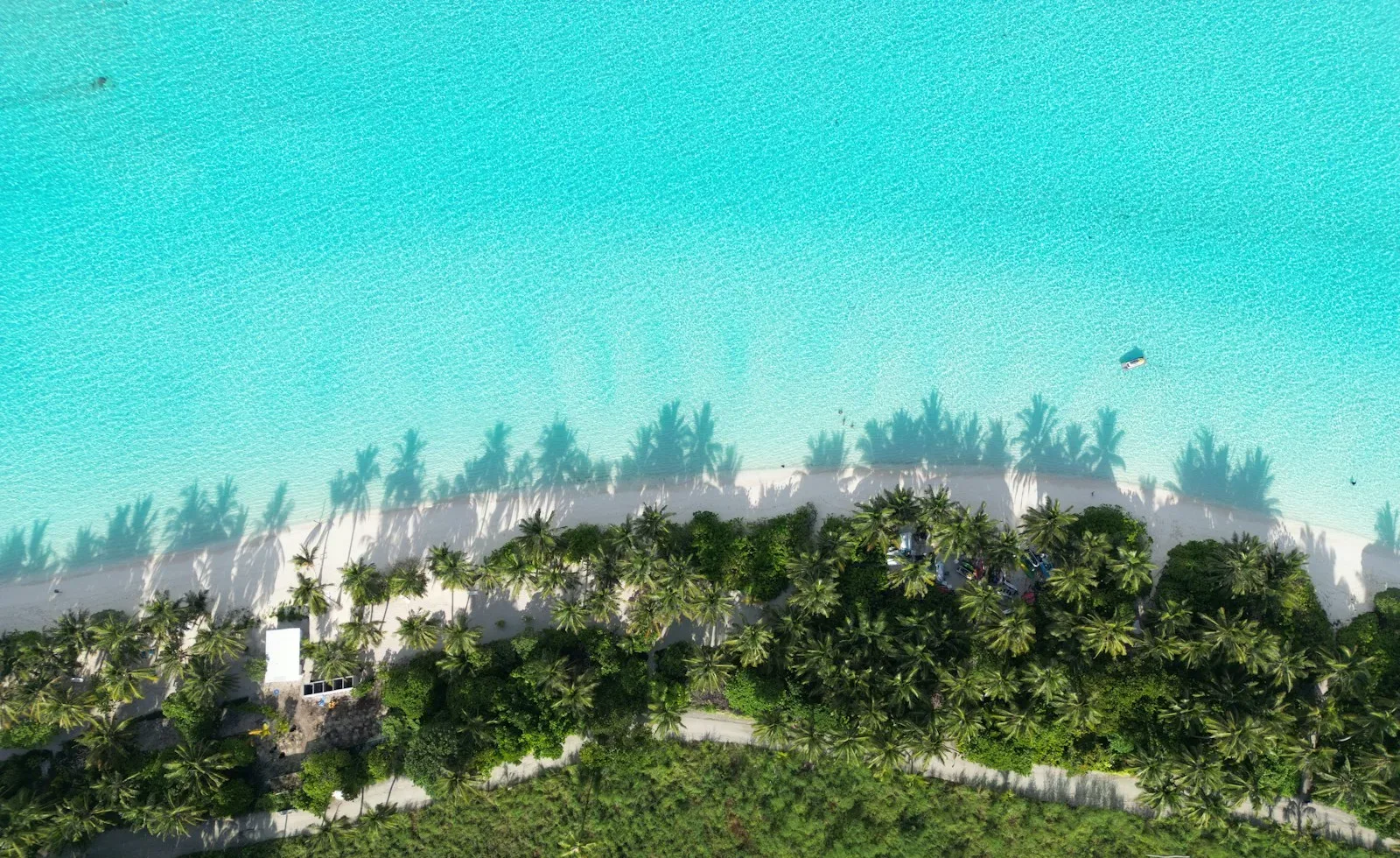Fiji’s Complete Things to Do in Island Chains GuideFiji things to do planning hub
Fiji is the South Pacific’s tropical postcard — where palm-fringed beaches, turquoise lagoons, and coral reefs meet fire dances, kava ceremonies, and Fijian hospitality. With over 300 islands, Fiji is a dream for beach lovers, divers, honeymooners, and adventurers alike.
Whether you’re snorkeling in the Yasawas, waterfall-hopping on Taveuni, or sharing stories over a traditional kava bowl, you’ll quickly discover why Fiji isn’t just a place — it’s a feeling.
Start planning with our complete Fiji Tour Guide — packed with island-by-island highlights, transport options, cultural etiquette, travel costs, and the best things to do across this South Pacific paradise.
Where to Go in Fiji
Kadavu | Lau Islands | Lomaiviti Islands | Mamanuca Islands | Rotuma | Taveuni | Vanua Levu | Viti Levu | Yasawa Islands
💡Quick Facts:
Destination: Fiji
Continent: Oceania
Country: Republic of Fiji
Administrative Division: 14 provinces across four divisions (Central, Eastern, Northern, Western)
City: Suva (capital)
Area: 18,274 km² (7,056 mi²)
Population: ~936,000 (2025 est.)
Density: ~51/km²
Capital: Suva
Regions/Subregions: Viti Levu, Vanua Levu, Taveuni, Yasawa Islands, Mamanuca Islands, Lau Group, Lomaiviti Group
Official & Regional Languages: English (official), Fijian, Fiji Hindi
Currency: Fijian dollar (FJD)
Time Zone(s): FJT (UTC+12), DST UTC+13 (seasonal)
Airports: Nadi International Airport (NAN), Nausori International Airport (SUV)
Climate: Tropical marine – warm, humid year-round, with a wet and dry season
Known For: Coral reefs, soft coral diving, tropical islands, Fijian culture, rugby, luxury resorts
🛂Arrival Info:
Entry requirements: Passport valid for at least 6 months beyond arrival.
Visa-free countries: 100+ nationalities including Australia, New Zealand, U.S., UK, EU states for up to 4 months.
Visa-on-arrival: Not offered; eligible travelers enter visa-free.
Maximum stay: 4 months visa-free; extensions possible.
ETA: Not required.
Visa portal: Fiji Immigration
Customs info: Fiji Revenue & Customs Service
💉Health Info:
Vaccines: Routine immunizations recommended; hepatitis A, typhoid suggested for most travelers.
Health risks: Dengue fever risk year-round; use mosquito protection.
Hospitals: Colonial War Memorial Hospital (Suva), Lautoka Hospital, Labasa Hospital; private clinics in major towns.
English-speaking care: Available in main hospitals and tourist areas.
Emergency care: Limited in outer islands; serious cases may require evacuation to Australia/New Zealand.
Insurance: Recommended with medical evacuation coverage.
✅ Check travel insurance options for travel emergencies, delays, and medical needs abroad — Get coverage here
✅ Stay Informed with Official Updates: WHO – International Travel & Health | CDC – Travel health updates
🚨Travel Advisory:
Current alerts: Cyclone season (Nov–Apr) can cause travel disruptions.
General safety: Moderate; petty theft in urban areas.
Local risks: Strong sun exposure, rip currents, tropical storms.
Regional restrictions: None.
✅ Stay Informed with Official Updates: US Travel Advisory | UK Foreign Travel Advice
📅Holidays:
Fiji Day: October 10 – Independence celebration.
Diwali: Hindu festival (Oct/Nov, date varies).
Christmas: December 25–26 – Public holiday.
New Year’s Day: January 1 – Public holiday.
Ratu Sukuna Day: Last Monday in May – Honoring a national leader.
💰Visitor Info:
Currency tips: FJD widely used; ATMs available in towns and resorts.
Card use: Accepted in resorts and urban centers; cash needed for markets and remote islands.
Tipping: Not customary; appreciated for exceptional service.
Duty-free: Limits apply for alcohol, tobacco.
Tourist taxes: Environment & Climate Adaptation Levy (ECAL) may apply to accommodations.
Average daily budget: Budget: FJD 100–200; Midrange: FJD 250–400; Luxury: FJD 600+.
✈️Airports:
Fiji has several airports, but two main international gateways:
Nadi International Airport (NAN) – Main international hub on Viti Levu.
Nausori International Airport (SUV) – Near Suva, Fiji’s capital; mainly regional flights.
Domestic airports: Serve outer islands including Taveuni, Savusavu, and Labasa.
Airlines: Fiji Airways (flag carrier), Air New Zealand, Qantas, Virgin Australia.
Transport: Taxis, shuttles, rental cars, domestic flights to islands.
✅ Delayed or canceled flight? Check if you’re eligible for compensation
🚍Transport:
Local: Buses, minibuses, taxis in cities; water taxis in coastal areas.
Ride-hailing: None; taxis are metered in urban centers.
Inter-island: Ferries, small boats, domestic flights.
Driving: Left-hand traffic; foreign licenses accepted; roads vary in quality.
Car rental: Available in major cities and airports.
Scams: Rare; agree on taxi fares if no meter.
✅ Book reliable airport transfers and in-city rides in advance. Reserve your ride here
📶Connectivity:
SIM/eSIM: Available from Vodafone Fiji, Digicel Fiji at airports and shops.
Coverage: Good on main islands; limited in remote islands.
Wi-Fi: Widely available in hotels and resorts; some free public hotspots.
✅ Stay connected abroad with affordable eSIM data packs. Get your eSIM here
📜Laws & Etiquette:
Alcohol: Legal drinking age 18; restrictions on Sunday sales in some areas.
Smoking: Prohibited in public indoor areas.
LGBTQ+: Legal; public attitudes vary.
Customs: Remove hats in villages; dress modestly outside resorts.
Photography: Ask before photographing people or inside villages.
🛡️Emergency Info:
Emergency: Police – 917; Ambulance/Fire – 910
Tourist assistance: Hotels and resorts offer support; Fiji Visitor Bureau can help.
Embassies: Located in Suva for major nations.
✅ Use embassy locator tools: Embassies Worldwide
🌦️Weather:
Climate: Warm year-round (~26°C avg). Wet season Nov–Apr; dry season May–Oct.
Best time: May–Oct for lower humidity and less rain.
Worst time: Nov–Apr for cyclones and heavy rainfall.
✅ Stay prepared—check the weather forecast for your destination — Weather Forecast
Fiji by Region – Where to Go
Fiji is made up of over 300 islands, but most travel centers around Viti Levu, Vanua Levu, and the nearby island chains.
Viti Levu (Main Island)
- Nadi – Fiji’s international gateway; home to the airport, resorts, and the famous Sri Siva Subramaniya temple.
- Coral Coast – Stretch of beach towns and resorts between Nadi and Suva; great for snorkeling, surfing, and cultural villages.
- Pacific Harbour – Adventure capital with whitewater rafting, shark dives, and jet boating.
- Suva – The capital city with colonial architecture, markets, nightlife, and museums.
- Rakiraki & Suncoast – Off-the-beaten-path with mountain hikes and diving.
Yasawa Islands
- A chain of volcanic islands northwest of Viti Levu known for budget-to-boutique beach resorts, snorkeling with manta rays, and dramatic coastlines.
- Perfect for island hopping via the Yasawa Flyer catamaran.
Mamanuca Islands
- Closer to Nadi and ideal for short stays and luxury escapes.
- Home to Castaway Island, Cloud 9 floating bar, and world-class surfing at Cloudbreak.
Vanua Levu
- Fiji’s second-largest island with fewer tourists and more nature.
- Visit Savusavu for hot springs and diving, or explore Bua for traditional villages.
Taveuni (Garden Island)
- Lush, green, and wild — perfect for hiking, waterfalls, and reef snorkeling.
- Don’t miss Bouma National Heritage Park and the Lavena Coastal Walk.
Outer Islands
- Kadavu – Home to the Great Astrolabe Reef, one of the world’s largest barrier reefs.
- Lau Group & Lomaiviti Islands – Remote, traditional, and ideal for sailing or expedition-style trips.
Top Places to Visit in Fiji
Beaches & Islands
- Blue Lagoon (Yasawas) – Famous for its calm, clear waters and white sand.
- Castaway Island – Made famous by the movie Cast Away; now a luxurious hideaway.
- Cloud 9 – A floating bar and pizzeria in the middle of the ocean near Malolo Barrier Reef.
Nature & Adventure
- Bouma Falls (Taveuni) – A three-tiered waterfall hike through rainforest.
- Beqa Lagoon (Pacific Harbour) – Renowned for shark dives and coral walls.
- Sigatoka Sand Dunes – UNESCO-listed archaeological and natural wonder on Viti Levu.
Culture & History
- Fiji Museum (Suva) – Explore ancient canoe-building, tribal tools, and colonial history.
- Navala Village (Viti Levu interior) – The only traditional village where all homes are thatched bures.
- Kava Ceremony – Participate in this cultural ritual offered at most resorts and villages.
How to Choose Where to Go in Fiji
- For first-timers: Base in Nadi, with trips to Mamanucas or Yasawas.
- For nature lovers: Head to Taveuni or Vanua Levu.
- For surfers and divers: Visit Pacific Harbour, Beqa Lagoon, or Kadavu.
- For remote escapes: Charter to Lau or Lomaiviti Islands.
- For families or honeymooners: Choose Coral Coast or private island resorts.
You can combine 2–3 islands in a 10-day trip for variety.
How to Get Around Fiji
- Domestic Flights – Fiji Link and Northern Air fly to major outer islands.
- Ferries & Boats – South Sea Cruises and Awesome Adventures operate in the Yasawas and Mamanucas.
- Buses & Minivans (Viti Levu) – Reliable and inexpensive for intercity travel.
- Private Transfers – Common between airport, resorts, and Coral Coast.
- Car Rental – Available on Viti Levu for independent exploration.
Tip: Plan transfers ahead — some islands are reachable only once or twice per day.
Travel Budget & Costs in Fiji
Average Daily Costs:
- Budget: $50–80/day (hostels, ferry pass, local eats)
- Mid-range: $120–200/day (island resorts, tours, transfers)
- Luxury: $300–600+/day (private islands, gourmet dining, scuba trips)
Sample Prices:
- Yasawa Flyer ferry pass (5 days): ~$350
- Local bus ride: ~$0.80
- Kava ceremony: Often free with village visit
- Hotel (mid-range): $90–150/night
- 2-tank dive: ~$100–160
Ways to save:
- Get an island hopping pass
- Eat at local eateries (lolos)
- Use shared transfers instead of private boats
Best Time to Visit Fiji
Dry Season (May–October):
- Pleasant weather, lower humidity, and best for diving, surfing, and hiking.
Wet Season (November–April):
- Warmer, more humid, occasional storms — but fewer crowds and lush scenery.
Best for surfing: May to September
Best for manta rays: May to October (Yasawa Islands)
Must-See Experiences in Fiji
- Snorkel with manta rays in the Yasawas
- Join a traditional meke dance and kava ceremony
- Hike to Bouma Falls on Taveuni, known as the Garden Island
- Spend a night on a remote island bure, waking up to the ocean
- Surf Cloudbreak, one of the world’s most iconic waves
- Sail through the Mamanucas, stopping at reefs and sandbanks
- Visit a Fijian village, offering insight into communal life and customs
- Watch fire dancing under the stars at a beachfront resort
Discover the best Fiji tours and unforgettable things to do in Fiji, from marine adventures to cultural immersion.
Best Travel Itineraries in Fiji
Island Essentials – 7 Days
- Nadi → Mamanucas → Yasawas
Ideal for beach lovers and first-timers.
Adventure & Culture – 10 Days
- Coral Coast → Pacific Harbour → Taveuni
Great for nature, waterfalls, and shark dives.
Luxury Escape – 5 Days
- Nadi → Private Island Resort → Spa + Snorkeling
Perfect for honeymooners or reset retreats.
Off-the-Beaten Path – 12 Days
- Nadi → Vanua Levu → Taveuni → Kadavu
Rich biodiversity, traditional villages, and few crowds.
Local Cuisine & Culinary Experiences
Fijian cuisine is a mix of indigenous, Indian, and Chinese influences — fresh, hearty, and tropical.
Must-Try Dishes
- Lovo – Earth-cooked feast of meat, taro, and fish
- Kokoda – Fijian ceviche with coconut cream and lime
- Palusami – Taro leaves baked with coconut cream
- Fijian curry – Often served with roti and chutney
- Cassava cake – Sweet, dense treat from local root veg
Drinks:
- Kava – Traditional, mildly sedative root drink shared in ceremonies
- Fiji Bitter / Fiji Gold – Popular local beers
- Fresh coconut water – Sold roadside and at beaches
Take part in a lovo night, food market tour, or resort cooking class to experience island flavors.
Travel Safety & Cultural Etiquette in Fiji
Safety Overview
- Fiji is very safe for travelers.
- Use reef-safe sunscreen to protect marine ecosystems.
- Cyclone season (Nov–April) warrants flexibility in plans.
Cultural Etiquette
- Dress modestly when visiting villages — cover shoulders and knees
- Always remove hats and shoes before entering a chief’s home
- Bring a sevusevu (gift), such as kava, when visiting traditional villages
- Smile — Fijians are famously friendly and warm-hearted
Where to Go Next – Pair Fiji with These Destinations
- New Zealand – Short hop for mountain hikes and Māori culture
- Australia (Brisbane or Sydney) – Combine reef with city
- Samoa or Tonga – More traditional Polynesian islands
- Hawaii – Another Pacific archipelago with volcanoes and surf
- Bali (via NZ/Aus) – For Southeast Asia extensions
New Zealand Travel Guide | Australia Travel Guide | Hawaii Travel Guide | Bali Travel Guide
Final Planning Checklist for Fiji
- Most nationalities are visa-free for 4 months
- Currency: Fijian Dollar (FJD)
- Book island resorts and ferries early in high season
- Bring reef-safe sunscreen, mosquito repellent, and flip-flops
- Download offline maps — connectivity is limited on smaller islands
- Learn some Fijian: “Bula!” (Hello), “Vinaka” (Thank you), “Moce” (Goodbye)
- Respect traditional customs during village visits — modesty and gifts appreciated
Explore Fiji with confidence using our trusted tips, local insights, and region-by-region planning tools.
For more expert travel tips, practical strategies, and trusted tools — visit our Homepage and get inspired for your next trip.

